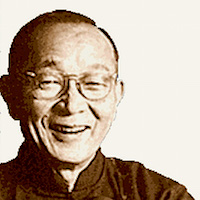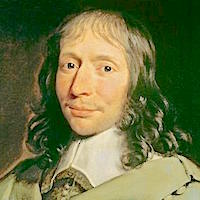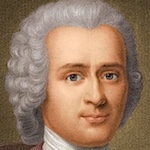

Tao Te Ching

Montaigne
1533 – 1592 CE
Grandfather of the Enlightenment
Son of a fish-seller, grandfather of the Enlightenment, “the first modern man,” statesman, author, apostle of doubt and moderation, Renaissance author most in harmony with the modern mind; Montaigne wrote some of history’s most influential essays. A master story-teller balancing philosophy with personal anecdote, deep insight with entertainment, wisdom and humor; he built on Lucretius and had a direct influence on Francis Bacon, Descartes, Pascal, Rousseau, Emerson, Nietzsche, and Shakespeare. “The most pagan of Christians,” called “the wisest Frenchman that ever lived,” he is still “read today as if he had written yesterday
Eras
Western
Renaissance (1304 – 1576 CE)Chinese
Ming dynasty (1368 – 1644 CE)Sources
Unlisted Sources
Quotes by Montaigne (38 quotes)
“Nothing fixes a thing so intensely in the memory as the wish to forget it.”
Comments: Click to comment
“The thing I fear most is fear . . . it exceeds all other disorders in intensity.”
Chapters:
72. Helpful Fear
Comments: Click to comment
“I distrust my present thoughts hardly less than my past ones and my second or third thoughts hardly less than my first.”
Chapters:
38. Fruit Over Flowers
Comments: Click to comment
“He who fears he shall suffer, already suffers what he fears.”
Chapters:
46. Enough
Comments: Click to comment
“A man who has learned how to die has unlearned how to be a slave.”
Chapters:
24. Unnecessary Baggage
Comments: Click to comment
“We grasp at everything, but catch nothing except wind.”
Chapters:
29. Not Doing
Comments: Click to comment
“There is as much difference between us and ourselves as there is between us and others.”
Chapters:
12. This Over That
Comments: Click to comment
“The most certain sign of wisdom is cheerfulness.”
Chapters:
22. Heaven's Door
Comments: Click to comment
“Let every foot have its own shoe.”
Chapters:
33. Know Yourself
Comments: Click to comment
“Learned we may be with another man's learning: we can only be wise with wisdom of our own.”
Chapters:
10. The Power of Goodness
Comments: Click to comment
“the best marriage would be between a blind wife and a deaf husband.”
Chapters:
29. Not Doing
Comments: Click to comment
“Nothing is so firmly believed as that which is least known.”
Chapters:
38. Fruit Over Flowers
Comments: Click to comment
“My life has been filled with terrible misfortune; most of which never happened.”
Chapters:
49. No Set Mind
Comments: Click to comment
“It is only certain that there is nothing certain.”
Chapters:
65. Simplicity: the Hidden Power of Goodness
Comments: Click to comment
“on the highest throne in the world, we still sit only on our own bottom.”
Chapters:
67. Three Treasures
Comments: Click to comment
“Better to be tentative than to be recklessly sure - to be an apprentice at sixty, than to present oneself as a doctor at ten.”
Chapters:
12. This Over That
Comments: Click to comment
“We are entirely made up of bits and pieces, woven together so diversely and so shapelessly that each one of them pulls its own way at every moment.”
Chapters:
13. Honor and Disgrace
Comments: Click to comment
“We trouble our life by thoughts about death, and our death by thoughts about life.”
Chapters:
15. Inscrutability
Comments: Click to comment
“Let us give Nature a chance; she knows her business better than we do.”
Chapters:
57. Wu Wei
Comments: Click to comment
“A man who has learned how to die has unlearned how to be a slave.”
Chapters:
24. Unnecessary Baggage
Comments: Click to comment
“One must be a little foolish if one does not want to be even more stupid.”
Comments: Click to comment
“There is no man so good that if he placed all his actions and thoughts under the scrutiny of the laws, he would not deserve hanging ten times in his life.”
Comments: Click to comment
“[Marriage] happens as with cages: the birds without despair to get in, and those within despair of getting out”
Comments: Click to comment
“A man is not hurt so much by what happens, as by his opinion of what happens.”
Comments: Click to comment
“Every man has within himself the entire human condition”
Comments: Click to comment
“Fear of death is the cause of all our vices... to philosophize is to learn to die.”
Comments: Click to comment
“Glory and curiosity are the two scourges of the soul; the last prompts us to thrust our noses into everything, the other forbids us to leave anything doubtful and undecided.”
Comments: Click to comment
“There is little less trouble in governing a private family than a whole kingdom.”
Comments: Click to comment
“There is no passion so much transports the sincerity of judgement as does anger.”
Comments: Click to comment
“Everything that we find in to be healthful to life can be called a medicine... it is the privilege of medicine to attribute to itself all the happy successes that happen to the patient; and, as to all the ill accidents, they absolutely disown in laying fault upon the patient”
Comments: Click to comment
“Nature has presented us with a large faculty of entertaining ourselves alone: and often calls us to it, to teach us that we owe ourselves in part to society, but chiefly and mostly to ourselves.”
Comments: Click to comment
“Dreams are true interpreters of our inclinations, but there is art required to sort and understand them.”
Comments: Click to comment
“There never were two opinions alike in all the world, no more than two hours or two grains: the most universal quality is diversity.”
Comments: Click to comment
“When I play with my cat, who knows whether I do not make her more sport than she makes me? We mutually divert one another with our monkey-tricks.”
Comments: Click to comment
“It is commonly seen by experience that excellent memories do often accompany weak judgements.”
Comments: Click to comment
“It is no hard matter to get children; but after they are born, then begins the trouble, solicitude, and care rightly to train, principle, and bring them up.”
Comments: Click to comment
Quotes about Montaigne (6 quotes)

“Montaigne is the prince; his essays are the perfectly urbane expression of a man who kept his mind clear and his blood sweet.”
Comments: Click to comment

“The manner in which Epictetus, Montaigne, and Salomon de Tultie wrote, is the most usual, the most suggestive, the most remembered, and the oftener quoted; because it is entirely composed of thoughts born from the common talk of life.”
Comments: Click to comment

“There have been arm-chair philosophers in France; and all of them, with the exception of Montaigne, have been persecuted... the last degree of the malignity of our nature is to oppress those very philosophers who would correct it.”
Comments: Click to comment

“I had always been amused at Montaign's false ingenuousness, and at his pretense of confessing his faults while taking good care only to admit to likeable ones”
Comments: Click to comment

“Montaigne simply turns his mind loose and writes whatever he feels like writing. Mostly, he wants to say that reason is not a special, unique gift of human beings, marking us off from the rest of nature.”
Comments: Click to comment

“Montaigne is wrong in declaring that custom ought to be followed simply because it is custom, and not because it is reasonable or just.”
Comments: Click to comment
Comments (0)